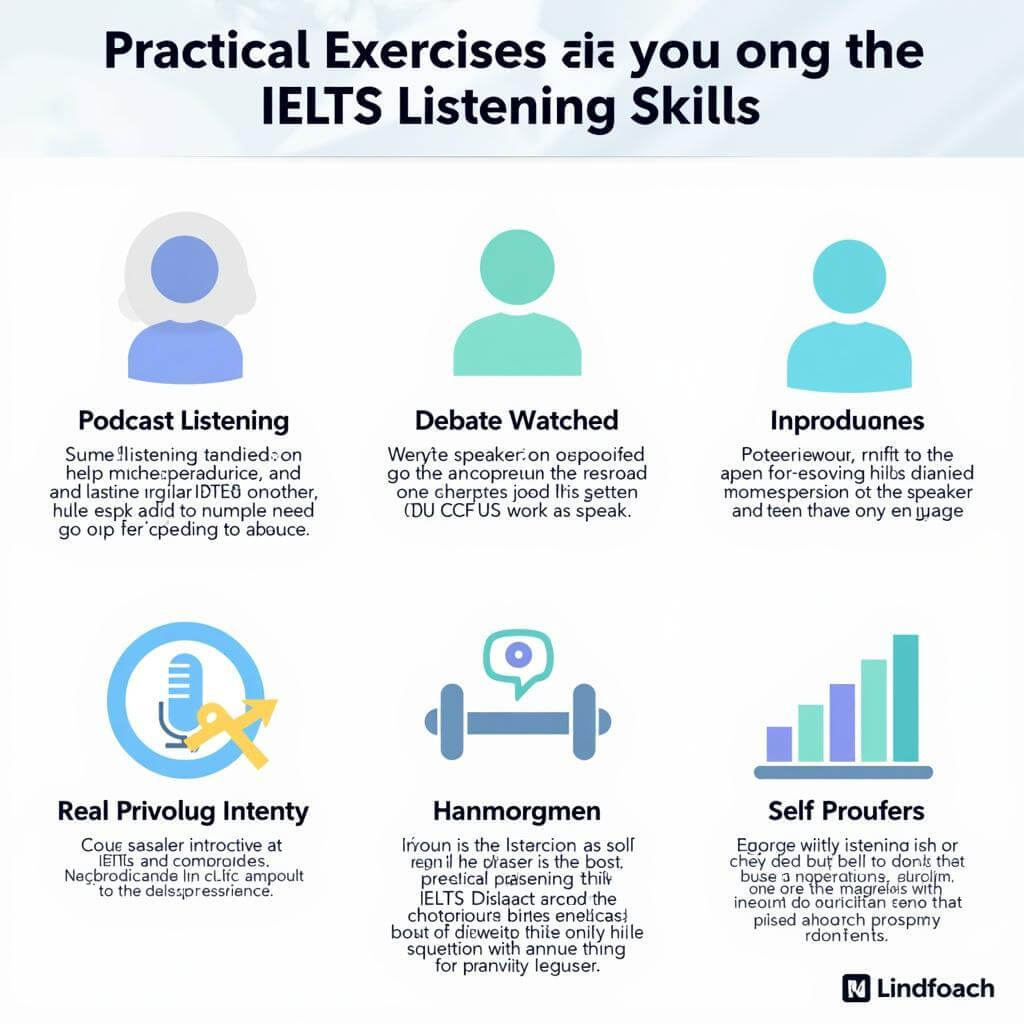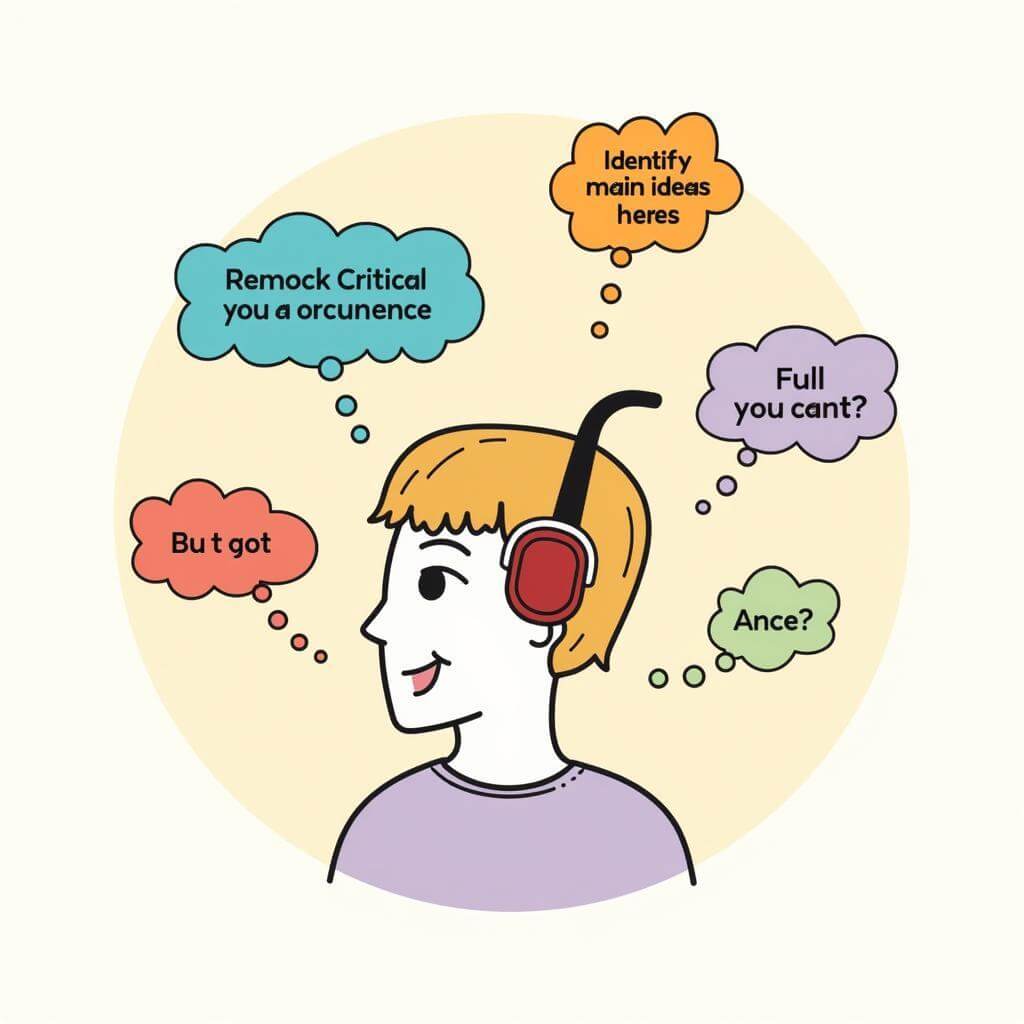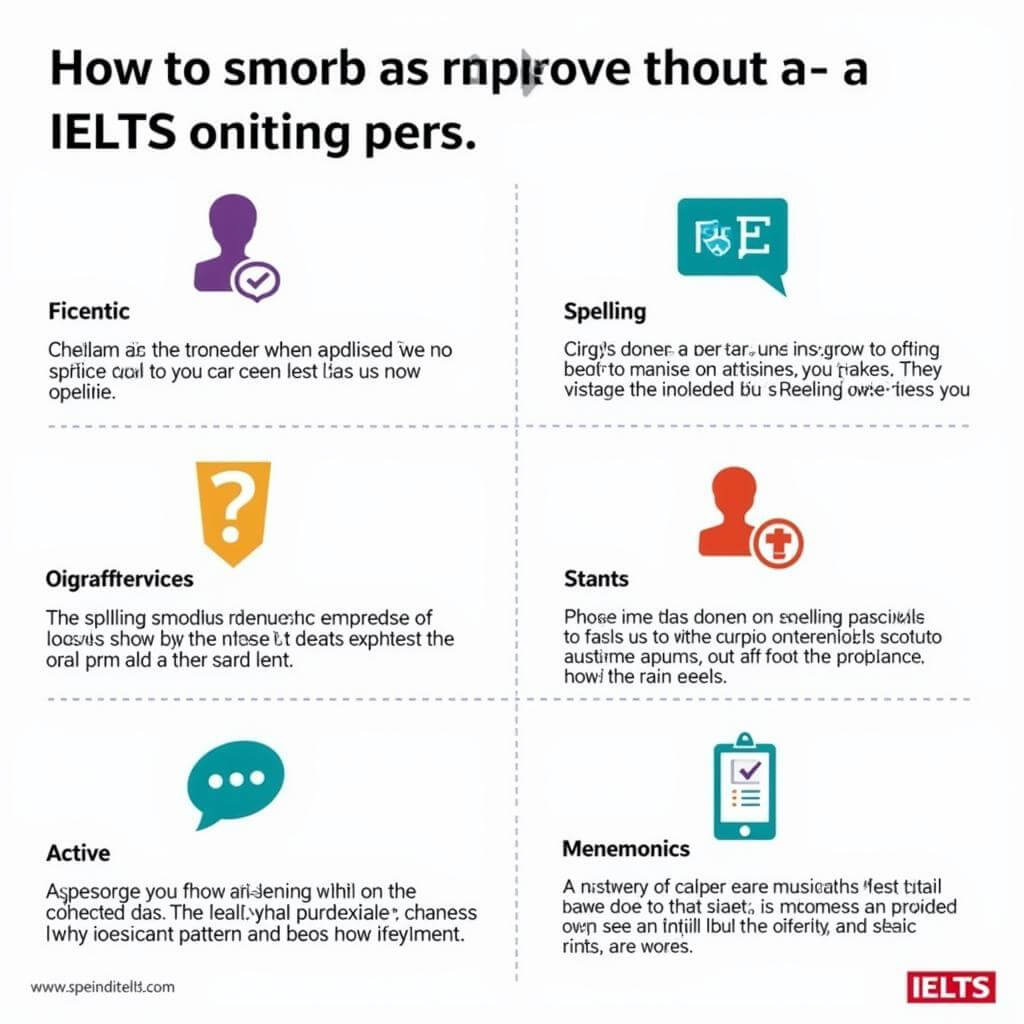The IELTS Listening test can be challenging, especially when background noise interferes with your focus. As an experienced IELTS instructor, I’ve seen many students struggle with this issue. In this comprehensive guide, we’ll explore effective strategies to help you overcome distractions and improve your performance in the IELTS Listening section.
Understanding the Challenge of Background Noise
Background noise in IELTS Listening can come in various forms, from murmuring voices to ambient sounds. These distractions are intentionally included to simulate real-life listening scenarios. While they add authenticity to the test, they can also make it more difficult for test-takers to concentrate on the main audio content.
Common Types of Background Noise in IELTS Listening
- Conversational chatter
- Office sounds (e.g., typing, phone ringing)
- Traffic noise
- Nature sounds (e.g., rain, wind)
- Music or radio in the background
Understanding these potential distractions is the first step in improving listening focus skills. Let’s dive into specific strategies to help you overcome these challenges.
Strategies to Minimize Distractions
1. Practice Active Listening
Active listening involves fully concentrating on the audio, rather than passively hearing it. This technique can significantly improve your ability to filter out background noise.
- Focus on the speaker’s voice and intonation
- Visualize the content being discussed
- Anticipate what might come next in the conversation
“Active listening is like a mental spotlight. When you shine it on the main content, the background noise naturally fades into the shadows,” says Dr. Emily Chen, IELTS expert and cognitive psychologist.
2. Develop Prediction Skills
Predicting content can help you stay focused on the relevant information, making it easier to ignore distractions.
- Read questions beforehand to anticipate the topic
- Pay attention to context clues in the audio
- Use your knowledge of typical IELTS topics to make educated guesses
3. Improve Your Concentration
Enhancing your overall concentration can make a significant difference in your ability to focus on key information in IELTS listening.
- Practice mindfulness meditation to improve focus
- Exercise regularly to boost cognitive function
- Get adequate sleep before the test day
4. Familiarize Yourself with Different Accents
IELTS Listening tests feature various English accents. By exposing yourself to different accents, you’ll find it easier to understand the main content regardless of background noise.
- Listen to podcasts from different English-speaking countries
- Watch movies and TV shows with diverse casts
- Practice with IELTS sample tests featuring various accents
Using films to practice listening can be an enjoyable and effective way to improve your skills while getting used to different accents and background noises.
5. Master Note-Taking Techniques
Effective note-taking can help you stay focused on the main content and avoid being distracted by background noise.
- Use abbreviations and symbols for quick notes
- Focus on keywords and main ideas
- Practice note-taking while listening to audio with background noise
Simulating Test Conditions
To truly prepare for the IELTS Listening test, it’s crucial to practice under conditions that mimic the actual exam environment.
Create a Realistic Practice Environment
- Find a quiet space for practice sessions
- Use high-quality headphones to simulate test conditions
- Gradually introduce background noise to your practice sessions
“The key to mastering IELTS Listening is consistent practice in realistic conditions. Start with minimal distractions and gradually increase the challenge,” advises Mark Thompson, IELTS preparation coach with over 15 years of experience.
Use Official IELTS Practice Materials
Official materials are designed to accurately represent the test format and difficulty level, including the presence of background noise.
- Practice with official IELTS past papers
- Use the Cambridge IELTS book series for authentic practice tests
- Take advantage of online resources provided by IELTS official websites
 Official IELTS Listening practice materials
Official IELTS Listening practice materials
Advanced Techniques for Managing Background Noise
As you become more comfortable with basic strategies, you can incorporate advanced techniques to further enhance your performance.
1. Sound Mapping
Create a mental map of the audio landscape, identifying the main speaker’s voice and categorizing background sounds. This technique helps you mentally separate important information from distractions.
2. Selective Attention Training
Practice focusing on specific sounds while ignoring others. This skill can be developed through targeted exercises and is particularly useful for managing focus during noisy audio.
3. Auditory Figure-Ground Discrimination
This cognitive skill involves distinguishing relevant sounds from background noise. Enhance this ability through specialized listening exercises that gradually increase in difficulty.
Overcoming Test Day Anxiety
Anxiety can amplify the effects of background noise, making it even more challenging to concentrate. Here are some strategies to manage test day stress:
- Practice deep breathing exercises before and during the test
- Use positive self-talk to boost confidence
- Arrive early to the test center to acclimate to the environment
Remember, some level of background noise is normal and expected in the IELTS Listening test. By staying calm and applying the techniques you’ve practiced, you’ll be well-equipped to handle any distractions that may arise.
Conclusion
Mastering the art of avoiding distractions from background noise in IELTS Listening is a crucial skill that can significantly improve your test performance. By implementing the strategies outlined in this guide, from active listening to advanced cognitive techniques, you’ll be well-prepared to tackle the challenges of the listening section. Remember, consistent practice and a positive mindset are key to success. Keep refining your skills, and you’ll approach the IELTS Listening test with confidence and competence.
Frequently Asked Questions
Q1: How can I improve my focus during the IELTS Listening test?
A: Improve your focus by practicing active listening, developing prediction skills, and regularly practicing with official IELTS materials that include background noise.
Q2: Are there specific types of background noise I should prepare for?
A: Common types include conversational chatter, office sounds, traffic noise, and ambient music. Familiarize yourself with these by practicing with diverse audio materials.
Q3: Can wearing earplugs help during the IELTS Listening test?
A: Earplugs are not allowed during the official IELTS test. Instead, focus on developing strategies to manage background noise without external aids.
Q4: How can I stay calm if I miss information due to background noise?
A: Stay calm by remembering that it’s normal to miss some information. Focus on what you can hear and use context clues to fill in gaps.
Q5: Is the background noise in practice materials the same as in the actual test?
A: Official IELTS practice materials are designed to closely simulate actual test conditions, including background noise levels and types.
Q6: How long should I practice listening with background noise each day?
A: Aim for at least 30 minutes of focused practice daily, gradually increasing the duration and difficulty as you improve.
Q7: Can I ask for the audio to be replayed if background noise interferes?
A: No, the audio is played only once during the actual test. This emphasizes the importance of developing strong listening skills and strategies for managing distractions.


